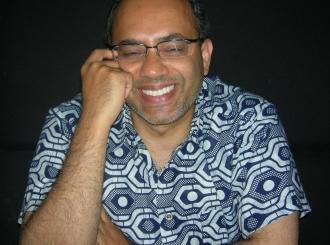Dr. Carlos Lopes Biography

My place of birth, the same as my parents, is the first marker to define who I am. Canchungo is a village of about 10.000 people in the northwestern part of Guinea-Bissau that we proudly call a city. The surrounding landscape is astounding: waterways in every direction and a green canvas that can easily be mistaken to be the Congo or the Amazon, where there is also plenty of water.
My father was jailed, not far from Canchungo because of his support for the liberation struggle. I was then a young boy trying to understand what was going on. At age 13, Independence Day came. Soon after I was involved in the whirlwind of politics, mobilized to the core by the ideals of pan-africanism. My mentor was Mário de Andrade, an Angolan intellectual living in Bissau at that time. Andrade was one the founders and the first President of the MPLA (Popular Movement for the Liberation of Angola), had participated in all the pan-African political and intellectual movements of that era and had also been Editor of the prestigious Présence Africaine in the Paris of the 1950s.
I finished my secondary education degree in Bissau’s Kwame Nkrumah Lyceum in 1977. By the time I was ready to go to University there wasn’t one in my country. I had to rely on Andrade’s powerful network to get a fellowship that brought me to Geneva and later Paris, where I got my PhD. I was lucky to be able to focus my research and academic work on African and development issues.
As problems developed in my country coup after coup I became disillusioned with the leadership. My public service contribution had to be done at a different level. I joined the UN while trying hard not to lose my bridges with the thinking networks of the continent. I have been trying my best to focus my professional life on important principles. Never take it easy, every reality deserves to be understood in its complexity. “Not simplifying what Africa, and African challenges, are”, is one example of that. “Never underestimate the importance of building the future with today’s actions”. In that spirit every step counts, particularly learning from what does not work. A lot has been done wrongly by Africans, but much more has been inflicted on them, I like to recall.
The African moment requires we build on the good news that are starting to reverse “African inferiority” perceptions built since the XV century. It is a good challenge. It will not happen though, without a strong reversal of fortunes. Africans cannot just run. They have to run faster than anybody else now and before. If the world is still admiring the Asian tigers story, they better get ready for the fastest animal on earth: the slim, astute speed record breaker cheetah, that hails from Africa!